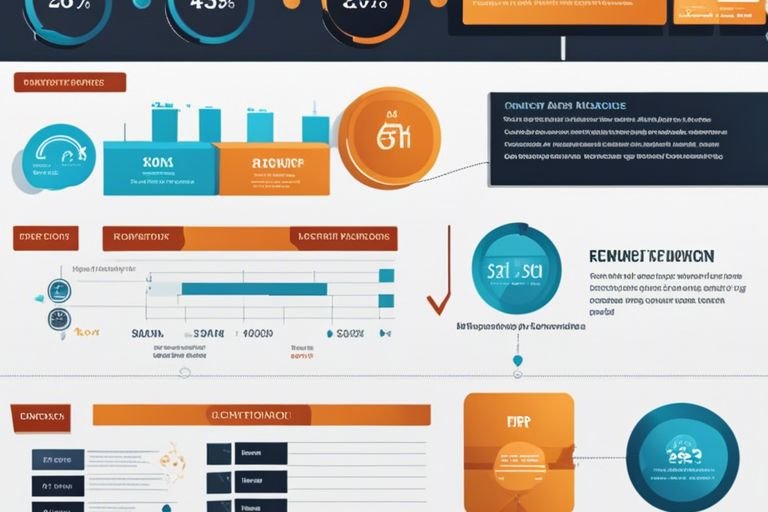What Are the Myths and Misconceptions About ERP Systems?

In the realm of enterprise resource planning (ERP) systems, there are numerous myths and misconceptions that plague the understanding of this vital business tool. Many organizations hesitate to adopt ERP systems due to these false beliefs, leading to missed opportunities for streamlining processes and increasing efficiencies. In this blog post, we will debunk some of the most common myths surrounding ERP systems and provide a clear understanding of their true capabilities and benefits. It’s time to dispel the rumors and set the record straight on ERP systems.
Key Takeaways:
- Myths about costs: Many people believe that implementing an ERP system is too expensive and only feasible for large enterprises. In reality, there are ERP solutions that cater to businesses of all sizes, and the long-term benefits often outweigh the initial costs.
- Misconceptions about customization: Some assume that ERP systems are rigid and cannot be tailored to fit their specific business processes. However, modern ERP solutions offer a high degree of customization to meet the unique needs of different industries and organizations.
- False beliefs about implementation time: A common misconception is that ERP implementation is a time-consuming and disruptive process. While it does require careful planning and collaboration, with the right approach and support from a knowledgeable provider, the transition can be smooth and efficient.

Common Myths About ERP Systems
Obviously, there are many misconceptions about ERP systems that can lead to confusion and hesitation when considering implementing such a solution for your business. In this section, we will debunk some of the most common myths surrounding ERP systems to provide a clearer understanding of their capabilities and benefits.
Myth 1: ERP is Only for Large Corporations
An all too common misconception about ERP systems is that they are only suitable for large corporations with extensive resources and complex operations. In reality, ERP systems can be just as beneficial for small and medium-sized businesses. These systems are designed to streamline and automate various business processes, allowing companies of all sizes to increase efficiency, improve decision-making, and enhance overall productivity.
Myth 2: ERP Will Lead to Instantaneous Results
Myths about ERP systems often falsely advertise as a quick fix for all business problems, promising instantaneous results once implemented. While ERP systems are indeed powerful tools, they do require time and effort to fully integrate and optimize within an organization. It is essential to manage expectations and understand that the benefits of an ERP system may not be immediately apparent. Patience and commitment to the implementation process are key to realizing the full potential of an ERP system.
This can include thorough training of personnel, refining processes to align with the system’s capabilities, and gradually phasing in different modules to ensure a smooth transition and maximum impact on business operations.
Misconceptions Regarding ERP Implementation
One of the most common misconceptions about ERP implementation is that it is easy and quick. Many organizations assume that once they have selected a ERP system, the implementation process will be a smooth and seamless transition. However, the reality is that ERP implementation is a complex and time-consuming process that requires careful planning, resources, and expertise.
Another misconception is that all ERP systems are the same. This can lead organizations to believe that they can simply select any ERP system and expect the same results. In reality, ERP systems vary significantly in terms of features, functionality, and suitability for different industries and business processes. It is important for organizations to carefully evaluate their specific needs and requirements before selecting an ERP system that is the best fit for their business.
Misconception 1: Implementation is Easy and Quick
Implementation of an ERP system is a comprehensive process that involves various stages such as planning, customization, training, testing, and deployment. This process requires the involvement of key stakeholders, including employees, IT personnel, and external consultants, to ensure a successful implementation. Rushing through the implementation process can lead to issues such as data migration errors, system integration problems, and employee resistance.
It is important for organizations to allocate sufficient time and resources for ERP implementation, and to develop a realistic timeline that considers potential challenges and setbacks. Effective project management and communication are essential for ensuring that the implementation process runs smoothly and that all stakeholders are aligned throughout the process.
Misconception 2: All ERP Systems Are the Same
A common misconception is that all ERP systems offer similar capabilities and functionalities. However, the truth is that different ERP systems are designed to address specific business needs and industry requirements. Therefore, it is essential for businesses to conduct a thorough assessment of their operational needs and objectives before selecting an ERP system. Taking the time to evaluate various ERP solutions and understanding their strengths and weaknesses can help businesses make an informed decision that aligns with their long-term business goals.
The Reality of ERP System Capabilities
Nowadays, ERP systems are equipped with a wide range of capabilities that go beyond basic functionalities. These systems are more than just data storage tools – they can help businesses streamline their processes, improve decision-making, and enhance overall efficiency. By understanding the true capabilities of ERP systems, businesses can leverage the technology to its fullest potential and gain a competitive edge in the market.
Addressing Myth 3: ERP Eliminates the Need for Manual Processes
The reality is that while ERP systems can automate many routine tasks, manual processes are still necessary in certain areas of the business. For example, there are certain tasks that require human judgment and decision-making, such as complex problem-solving or creative thinking. ERP systems can complement manual processes by providing accurate data and insights, but they cannot completely eliminate the need for human intervention.
Addressing Myth 4: ERP Systems Are Inflexible
The reality is that modern ERP systems are highly flexible and customizable to fit the unique needs of different businesses. With the advancement of technology, ERP vendors have developed systems that are modular and adaptable, allowing businesses to tailor the system to their specific requirements. Whether it’s adjusting workflows, integrating new modules, or making system configurations, ERP systems are designed to be flexible and cater to the evolving needs of businesses.
Capabilities such as customization, adaptability, and modular design are key features of modern ERP systems that address the misconception of inflexibility. Businesses can harness these capabilities to create a tailored ERP solution that meets their specific needs and supports their growth and evolution.
The Impact of ERP Myths on Business Decisions
Unlike other software solutions, Enterprise Resource Planning (ERP) systems are often surrounded by myths and misconceptions that can significantly impact business decisions. These myths can lead to hesitation in adopting ERP systems or even result in poor implementation strategies, ultimately hindering a company’s ability to reach its full potential.
How Myths Influence ERP Selection and Implementation
Influence of ERP myths can heavily impact the selection and implementation process of ERP systems. For example, the myth that ERP systems are only suitable for large corporations may lead small and medium-sized businesses to overlook the potential benefits of these systems. Similarly, the belief that ERP implementation is always time-consuming and expensive can deter companies from considering the long-term advantages of streamlining their operations through an ERP solution.
Overcoming These Myths to Make Informed Decisions
Informed decision-making regarding ERP systems requires overcoming these myths and misconceptions. Companies must recognize that ERP systems can be tailored to meet the specific needs of their business, regardless of size, and that modern ERP solutions offer flexibility and scalability. By conducting thorough research and seeking guidance from ERP experts, businesses can gain a more accurate understanding of the potential benefits and drawbacks of implementing an ERP system.
This process involves educating key stakeholders, including decision-makers and end-users, about the reality of ERP systems and dispelling common misconceptions. By doing so, businesses can ensure that they are making well-informed decisions that align with their long-term goals and objectives, ultimately maximizing the value of their ERP investment.
Conclusion
On the whole, the myths and misconceptions surrounding ERP systems can greatly impact an organization’s decision-making process. By understanding the truth behind these myths, businesses can make informed decisions about whether to implement an ERP system. It is crucial to debunk the misconceptions about cost, implementation time, and customization to realize the full potential of an ERP system. By doing so, organizations can harness the power of ERP to streamline their operations, improve efficiency, and drive growth. It is essential for businesses to conduct thorough research and seek professional advice to dispel any misunderstandings and make the most out of their investment in an ERP system.



